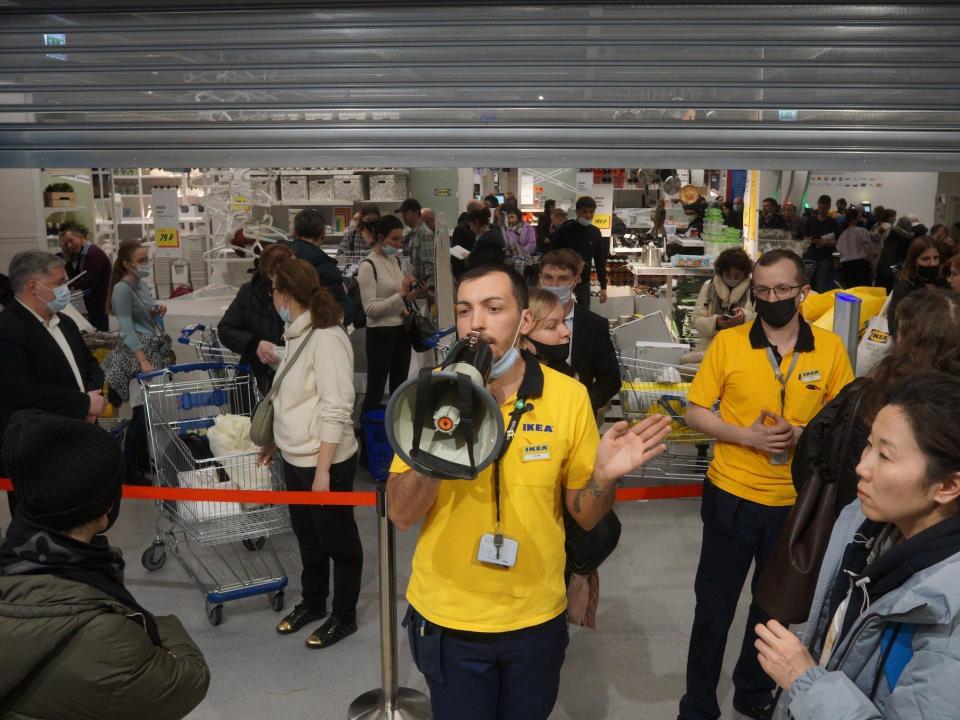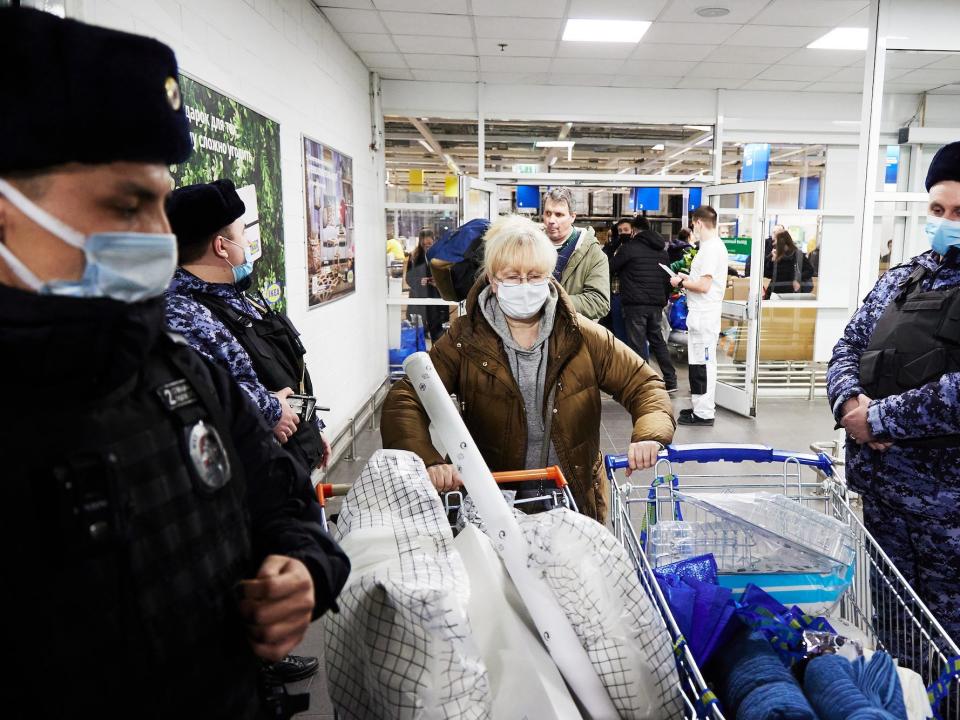Russian shoppers swarm Ikea stores to stock up ahead of closures
Ikea said this week that it would close all 17 of its stores in Russia because of the conflict.
Russian shoppers rushed to the stores to stock up on products.
Ikea is among a number of major US and European companies that have halted operations in Russia.
Shoppers flocked to Ikea's stores in Russia this week after the budget furniture chain announced that it would temporarily close all of its outlets in the country because of the Russia-Ukraine conflict.
In a statement shared with news organizations, the company said it was closing stores to support the safety of its workers and because the conflict had caused major issues to its supply chain.
Photographers shared on social media photos and videos they took that showed long lines outside some of the 17 stores that Ikea operates in Russia. The stores closed on Thursday.
Local journalists who photographed the scenes inside and outside Ikea stores in Moscow said staff at the stores advised customers to leave the lines because it would be impossible to serve them all before closing time.

But shoppers persevered and continued to wait in line, they said.

Ikea is among a number of major US and European companies who are either temporarily halting their operations in Russia because of the conflict or pulling out of the country entirely.
Apple, Nike, H&M, Disney, and Warner Bros. are among the companies limiting or ceasing services there. The oil companies BP and Shell both divested their 20% stakes in Rosneft, Russia's state-backed energy giant, in protest at the country's invasion of Ukraine.
Experts said foreign retailers who continued to operate in Russia would find it increasingly challenging to stock their stores or distribution centers, as leading freight and shipping companies — such as Maersk, FedEx, UPS, and DHL — had stopped delivering to the country.
A spokesperson for DSLV, Germany's federal logistics association, told Bloomberg that while deliveries were still being made by road, the number of companies doing so was rapidly diminishing.
Read the original article on Business Insider

